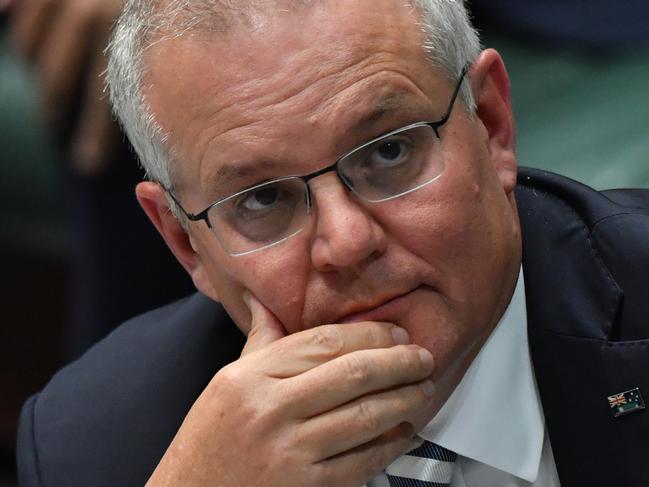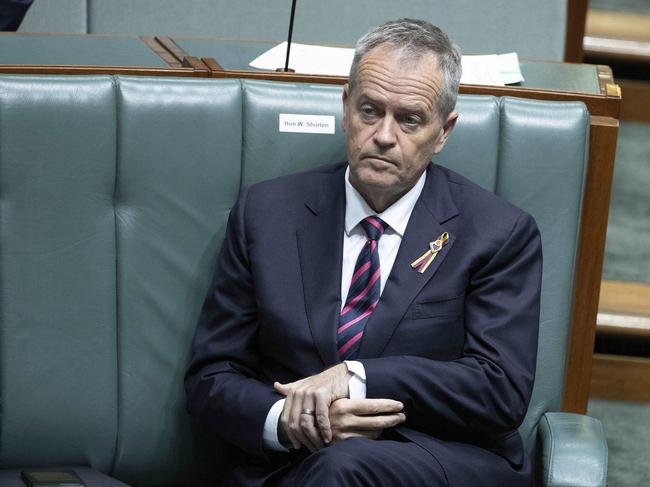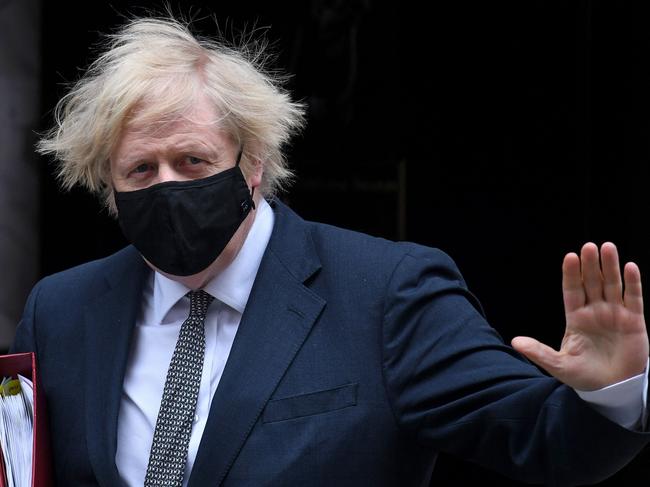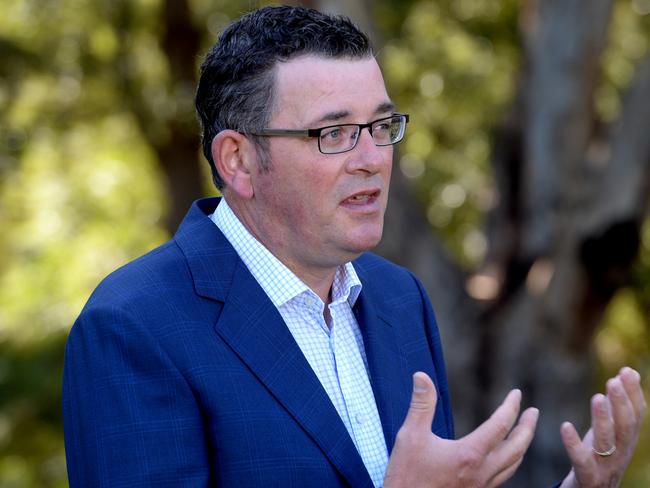Seven years in power yet Scott Morrison’s government has no agenda
Scott Morrison possesses political gifts and judgment not seen since John Howard was dismissed in 2007 — but where is the PM’s agenda, asks James Campbell.
Opinion
Don't miss out on the headlines from Opinion. Followed categories will be added to My News.
Among the problems facing this government as it struggles to wrest back control of its agenda, is that no one really knows what that agenda is.
When Scott Morrison was returned to office in 2019 it was essentially on a promise that he would not be Bill Shorten or try to implement Bill Shorten’s agenda.
And on that basis no one can claim his time in office hasn’t been a roaring success.

The problems began in summer that year when the PM was ridiculed for having left the country while the east coast of Australia burned.
Whether Morrison would have recovered from that misstep in the absence of the coronavirus pandemic is, of course, an academic question because there was a coronavirus pandemic and he has led the country through it well.
Dealing with a real honest-to-goodness old-fashioned crisis helps, of course. As Donald Trump showed, it takes a special kind of political incompetence to blow the goodwill that people extend to governments when they are afraid.
And no one would claim for a second that Morrison does not possess political gifts and judgment greater than everyone who has occupied the top job in Canberra since John Howard was dismissed by the electorate in 2007.
Certainly when it comes to internal party management he is self-evidently ahead of Kevin Rudd, Julia Gillard, Tony Abbott and Malcolm Turnbull, who were all removed from office by their own MPs.

The pandemic has also shown he is cunning in dealing with outside stakeholders. Leaving the nasty public health decisions to the states while spending billions on keeping the economy afloat was probably the only way Australia could have handled this challenge, given how large and decentralised service provision is in this country.
From the Commonwealth’s point of view this had the happy effect of making the states responsible for just about everything that could go wrong.
But an unforeseen consequence of this has been to elevate state leaders in the minds of the public because they have been forced to lead.
And as the experience of Victoria shows, the Australian public is extremely forgiving of leaders who lead even if their mistakes have, as in the case of Daniel Andrews, cost more than 800 lives. The same phenomenon is at play overseas.
By any measure the UK government botched its initial response to the pandemic.
But despite having one of the highest death tolls in the world, the British public has been remarkably forgiving of Boris Johnson’s handling of the crisis.
No doubt this can be explained in part by the world class successful rollout of the vaccine.
But only in part.

Johnson, like Andrews in Victoria, appears to have been given the benefit of the doubt by the public because no one can deny the buck stops with him.
Would Scott Morrison be in a better position today if it had been him on the hot spot the past year, that is to say, would he have had more goodwill in the bank?
Obviously not with the people who hate the Liberal Party and all its works, because they see it as they embodiment of cultural values they despise, but the majority of Australians who don’t really think about politics and who feel broadly comfortable with the conservative values the Liberal Party represents, but who nonetheless have been shocked and dismayed as the allegations have piled up over the past few weeks?
To go back to where I began, it is hard not to wonder how much stronger Morrison’s position would be now — despite all the horrible mistakes he has made since mid-February — if we had a better idea of what this government wants to do beyond getting us back to where we were at the beginning of last year.
To be fair, given the scale of the disaster we have lived through in the past year — and the fact large swaths of Australia are still doing it really hard — it is no surprise that most people in this government probably saw getting things back to normal as a big enough deal to merit re-election.

But the fact is, even before the current crisis began, a crisis that is at once about a series of specific allegations and a more widespread demand for social change, it was becoming clear that getting back to normal had its limitations as a political strategy.
It is perhaps understandable that Morrison and his fellow Generation X men have been blindsided by a social revolution that has been building as they have been moving into middle age.
What is harder to forgive is the failure over the past seven years to deal with the growing list of things in need of reform that they themselves would regard as the core business of the federal government.
The last real change to the tax system — the GST — was implemented more than two
decades ago. Home ownership levels continue to fall. Despite attempts at tinkering, Julia Gillard and Bill Shorten’s IR system remains substantially in place. Energy policy?
The list goes on.
Which isn’t to say being on top of these issues would have been much use dealing with the revolution that has been triggered by all the muck that has come down the pipe in the past five weeks. It clearly wouldn’t have been.
But if it does survive this crisis this government will need to show it has an agenda beyond not being the Labor Party.




